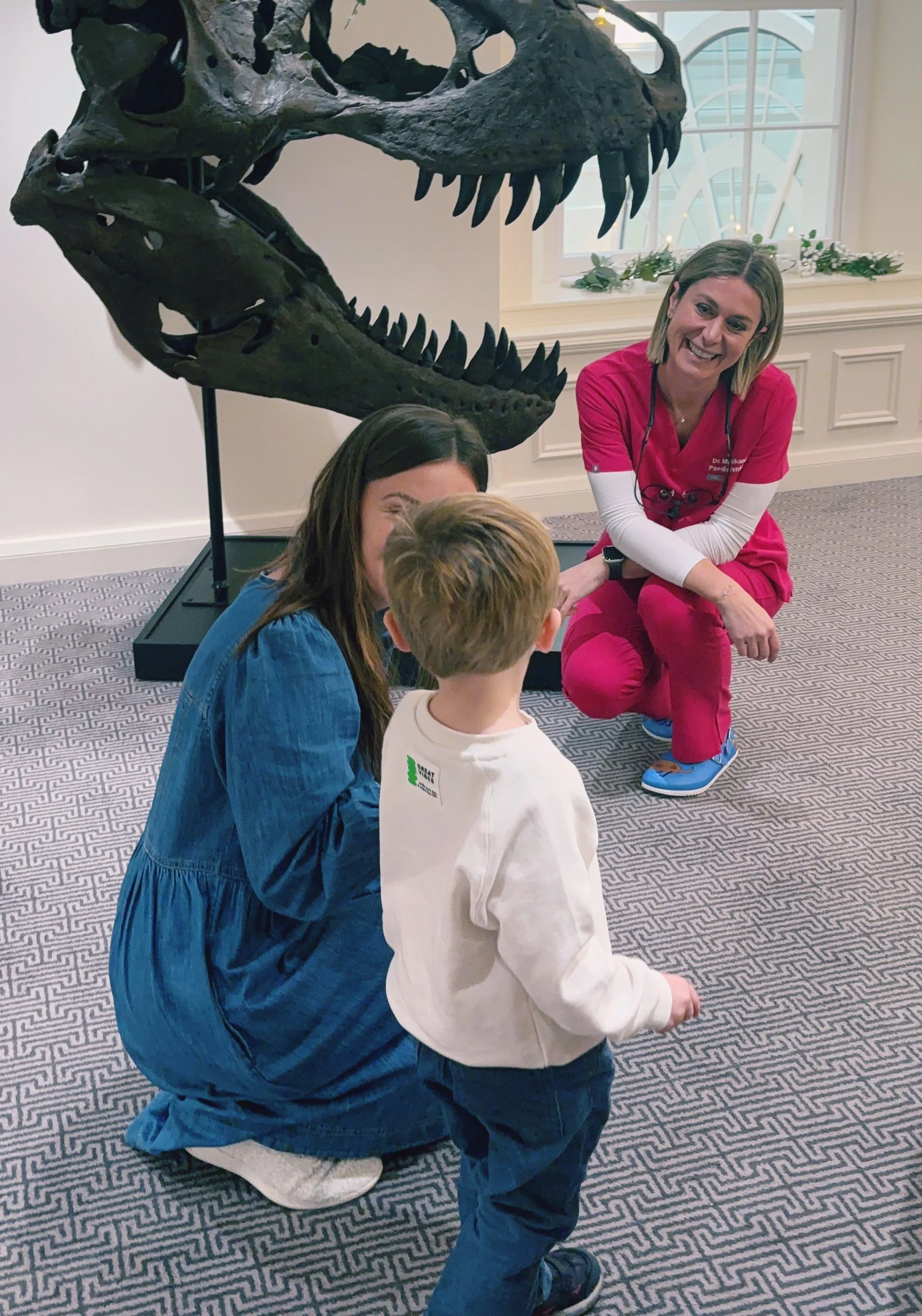What to Expect at Your Child's First Dental Appointment
The first dental visit aims to establish trust, introduce the child to the dental environment, and set the stage for lifelong oral health. The British and American Academy of Paediatric Dentistry recommend scheduling this visit by the child’s first birthday or when their first tooth erupts. This early introduction builds a positive, proactive approach to dental care.
Why Your Child’s First Dental Visit Is Important
Early Detection of Dental Issues
The first visit allows the dentist to identify any early signs of cavities, gum issues, or developmental concerns. Catching problems early can prevent more serious issues down the line.Establishing a "Dental Home"
Building a relationship with a dentist early helps create a sense of familiarity and comfort for your child. This "dental home" becomes a go-to place for dental care, emergencies, and guidance.Promoting Healthy Oral Habits
The dentist will educate parents and children on brushing, flossing, and dietary habits that prevent cavities. Starting these habits early sets the foundation for lifelong oral health.Reducing Dental Anxiety
A positive, stress-free first visit helps your child feel more comfortable with future dental appointments. Familiarity with the dentist can reduce anxiety as they grow older.Parental Guidance and Support
Parents receive valuable advice on pacifier use, thumb-sucking, teething, and other age-related dental issues. This guidance helps parents support their child’s oral health at home.Preventing Costly Treatments
Preventive care and early intervention can reduce the likelihood of expensive dental procedures in the future, like fillings or orthodontic treatments.
Here’s what typically happens during a child's first dental visit:
Warm Welcome and Introduction
The dental team aims to create a comfortable, child-friendly environment. The paediatric dentist or the dental nurse may give a brief tour of the clinic to help the child feel at ease.
Discussion of Medical and Dental History
Parents are asked to provide information about the child’s medical history, oral habits (like thumb-sucking), and any concerns they have about their child’s teeth.
Gentle Examination
The paediatric dentist will check the child’s teeth, gums, jaw, and bite for signs of decay, alignment issues, or other concerns. This part is usually quick and non-invasive.
For very young or nervous children, paediatric dentists often use a "lap-to-lap" technique. In this approach, the child sits on the parent’s or carer’s lap while facing them. The dentist then sits next to the parent, allowing the child to lean back into the dentist's lap for the examination or cleaning.
This method provides:
Comfort and Reassurance: The child feels safe in the presence of a trusted adult.
Easier Access for the Dentist: The dentist can see and access the child's mouth more easily.
Reduced Anxiety: Being close to a parent helps calm anxious or fearful children.
This approach is especially helpful for infants, toddlers, or children with special needs. It creates a more positive experience and helps establish trust with the dentist.
Teeth Cleaning
If appropriate, the dentist will gently clean the child’s teeth to remove plaque or stains. This process is often brief and done with child-friendly tools.
Fluoride Treatment (If appropriate)
A fluoride application may be recommended to strengthen the teeth and prevent cavities. A recommendation will be made based on the child’s age, exposure to fluoride in their daily life, and risk of developing dental decay.
Oral Hygiene Education
The dentist will offer tips on brushing, flossing, and diet to support healthy teeth. They may also demonstrate proper brushing techniques.
Opportunity for Questions
Parents can ask questions about teething, pacifier use, thumb-sucking, or any other concerns.
Paediatric dentists are specially trained to care for infants, toddlers, and children, using child-friendly techniques to ease anxiety and build trust. Their expertise in child-specific oral development, combined with a nurturing, playful approach, ensures a positive first experience for your child. Visiting a paediatric dentist helps set the foundation for healthy habits, making future visits stress-free and encouraging a lifetime of confident smiles.



